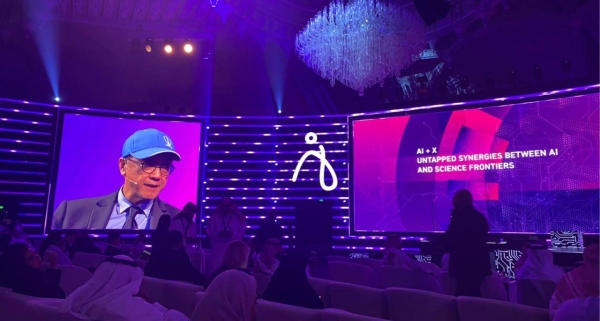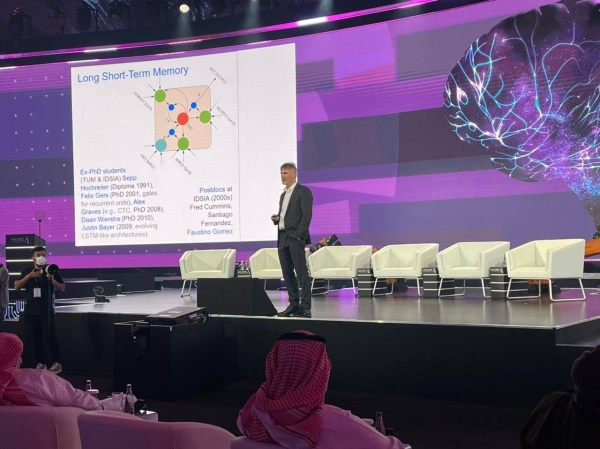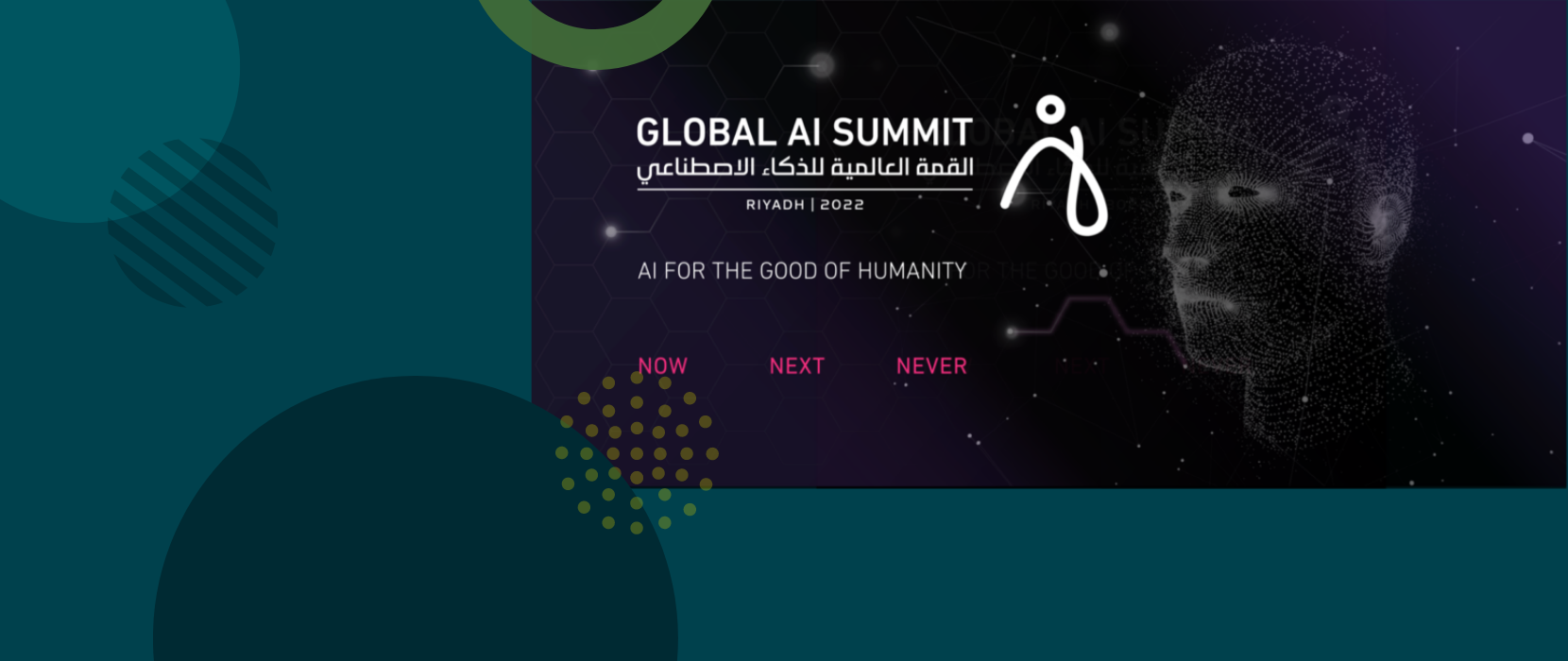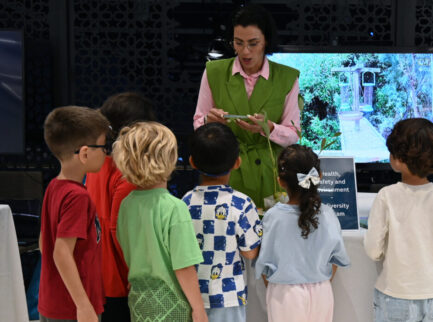The realm of Artificial Intelligence, or AI, is a rapidly expanding branch of computer science with the ability to revolutionize how we interact with the digital and physical world. Under the patronage of HRH Prince Mohammed bin Salman bin Abdulaziz AlSaud, the Kingdom of Saudi Arabia has hosted its second Global AI Summit, an event aimed at reframing the current dialogue between policymakers, innovators, investors, and leaders into a unified action to integrate AI technology into key pillars of human development such as energy, environment, urbanism, mobility, health, among others.
Hosted in Riyadh and organized by the Saudi Data and Artificial Intelligence Authority (SDAIA), the event counted several keynote speakers, including KAUST AI-expert faculty Prof. Jürgen Schmidhuber and Prof. Bernard Ghanem, KAUST Provost Dr. Lary Carin, and KAUST President, Prof. Tony Chan. In a talk exploring the concept of “AI+X”, Prof. Chan discussed the potential synergies and power of combining AI technologies with several other science and technology fields, with the aim of tackling humanity’s most pressing challenges, under the UN Sustainable Development Goals framework.

Throughout his dialogue, Prof. Chan highlighted AI breakthroughs made by KAUST researchers that have already made an enormous impact. An example is “Long Short-Term Memory” (LSTM) technology developed by Prof. Juergen Schmidhuber. Prof. Chan also noted that deep neutral nets could benefit from studies of glial cells, as revealed by a team led by Prof. Pierre Magistretti.
Across the technologies discussed, Prof. Chan enforced how such innovations could be translated into tools that can help the world to meet the current SDG agenda, giving examples of obvious impact in SDG 9 through automation and Innovation in Industry and Infrastructure; on SDG 2 – Zero Hunger by applying (LSTM-NN) in forecasting rice cultivation and environmental prediction for improved agricultural production; and on SDG3, by using mimicry of biological processes to train artificial networks or using LSTM-NN for automated diagnostic systems.
“ As I speak, we have at least 30 different directions taken by our KAUST faculty in the “AI + X” space. Our objective here is not just to expand AI applications, but rather also improve AI ideas and concepts through the applications themselves. [Also] KAUST is a university. As much as we seek AI applications for the common purposes of life (…) teaching of AI and the utilization of AI to improve teaching and learning are amongst our top priorities.”, he added.

As one of the several strategic initiatives ongoing at KAUST, the AI Initiative led by Prof. Schmidhuber and Prof. Ghanem aims to place KAUST as a leader in the development and teaching of AI in the Kingdom and the world.
Find out more about the KAUST AI initiative.
Read the full interview with Prof. Tony Chan at the Global AI Summit.




